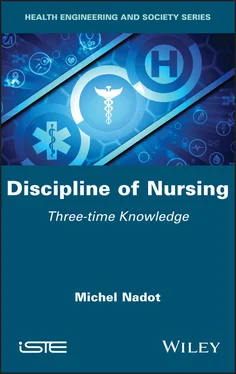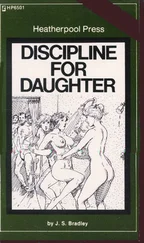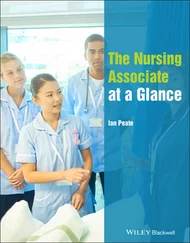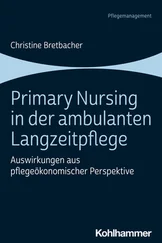Michel Nadot - Discipline of Nursing
Здесь есть возможность читать онлайн «Michel Nadot - Discipline of Nursing» — ознакомительный отрывок электронной книги совершенно бесплатно, а после прочтения отрывка купить полную версию. В некоторых случаях можно слушать аудио, скачать через торрент в формате fb2 и присутствует краткое содержание. Жанр: unrecognised, на английском языке. Описание произведения, (предисловие) а так же отзывы посетителей доступны на портале библиотеки ЛибКат.
- Название:Discipline of Nursing
- Автор:
- Жанр:
- Год:неизвестен
- ISBN:нет данных
- Рейтинг книги:5 / 5. Голосов: 1
-
Избранное:Добавить в избранное
- Отзывы:
-
Ваша оценка:
- 100
- 1
- 2
- 3
- 4
- 5
Discipline of Nursing: краткое содержание, описание и аннотация
Предлагаем к чтению аннотацию, описание, краткое содержание или предисловие (зависит от того, что написал сам автор книги «Discipline of Nursing»). Если вы не нашли необходимую информацию о книге — напишите в комментариях, мы постараемся отыскать её.
Discipline of Nursing — читать онлайн ознакомительный отрывок
Ниже представлен текст книги, разбитый по страницам. Система сохранения места последней прочитанной страницы, позволяет с удобством читать онлайн бесплатно книгу «Discipline of Nursing», без необходимости каждый раз заново искать на чём Вы остановились. Поставьте закладку, и сможете в любой момент перейти на страницу, на которой закончили чтение.
Интервал:
Закладка:
Should nursing research be exclusively at the service of the profession’s four fields 2 3 of practice, or is it possible to envisage, for example, basic or free research for the nursing discipline? In the absence of basic research, we often have a partial picture of the nursing discipline. An overview and a homogeneous synthesis of knowledge built up over the long term is sorely lacking. Moreover, the vocabulary used has often been so mixed up in meaning that the origin, values and profile of the care professional (nurse) are not recognized today. This knowledge, produced and instrumented over the long term by groups with different value systems, as can be seen in Figure 13.1, does not always reveal its origins. A distinction must be made in terms of values between religious knowledge (French-Catholic or Anglo-Protestant) and lay knowledge. The activity at the Hôtel-Dieu differs from that of the civil hospital. The foundations of the discipline lie not in the natural sciences such as medicine, but within the human and social sciences. In the long term, the medical profession, since it has been authorized for practice in the hospital, often delegates new knowledge to nurses in order for them to develop advanced practices. However, each time advancement presupposes a higher requirement in terms of knowledge and not specialized knowledge specific to the discipline in order to clarify ordinary practice.
1 1There are a multitude of ways to approach the notion of discipline. The place of language traditions in the constitution of a discipline must be taken into account and allows us to see the discipline as “a historically rooted articulation of composite elements that can make sense in a sustainable way and constitute a rational instance of knowledge” [BER 04]. However, the notion of discipline “is irremediably associated with the development of the university, of which it is an organizing principle” [FAB 13]. Today, it is known that the “epistemological analysis of the theoretical bases of nursing science shows the anchoring points around which the body of scientific knowledge belonging to the discipline is organized and defines its object according to four concepts: environment, person, care and health” [DAL 08a]. For Pépin et al., a discipline is also “a field of investigation and practice with a unique perspective or a distinct way of examining phenomena” [PÉP 10]. But we also know “that it is impossible to deal with the disciplinary question today without associating it with the political dimension of scientific activity. Discipline is an operation of domination before being a structure of knowledge production” [FAB 13].
2 2In order of appearance: 1) care practice, 2) teaching practice, 3) management practice, 4) research practice.
3 3Practice is a human action that is controlled and guided by symbolic elements included in a cultural system (knowledge, values, ideologies). Practice, even if it is only healthcare practice, “is then a consequence of the translation and understanding of values into norms of action” [NAD 93].
1
Role of History
1.1. Lay knowledge
Lay knowledge is that which goes back to periods when a group of people used knowledge when that group did not yet exist as a corporation. It is knowledge that is not necessarily shared collectively and not yet standardized. People who needed this lay knowledge to carry out their occupations were not aware that they had common knowledge and shared it with others. They only did their work in conditions that were sometimes close to hospital slavery. There were still no schools and structured training in the age of lay knowledge. However, and this is an important discovery, those who performed their duties needed to pass on their knowledge to those who would replace them. Everyone was alone with the hospital managers of the time. The hospital governesses, maids and servants took an oath to perform their duties in exchange for a salary in kind and in cash. They mobilized tacit knowledge in action, domestic knowledge, knowledge necessary to run a household, take care of a family, mobilize knowledge related to the characteristics of gender, the woman, the mother, the governess and her servant or mistress of the house. In any case, there was a household to organize!
There were no new roles, new knowledge or modern nursing without reference to previous knowledge. Just as it is difficult to talk about advanced practice without knowing what ordinary practice consists of, we cannot value the role of Florence Nightingale without understanding why she suddenly appeared and was talked about in the mid-19th Century. There is always a before. There were treatments before her. The evolution of knowledge is always an improvement of previous knowledge. And this, even when the latter does not give rise to extraordinary words, to writing and its visibility. Ancient knowledge can even prove to be timeless. It is still part of the care practice. For example, practices of moving around in the hospital or collective hygiene practices have survived for centuries. They still prevail, and we can prove it. What has changed is the environment and the characteristics of the space in which we move. Lay knowledge is not to be contrasted with professional or scientific knowledge. It has simply not yet reached this stage of standardization and recognition. This was much earlier.
The knowledge of the age of lay knowledge was heterogeneous, disparate, vulgar, tacit and implicit. This knowledge had little to do with medicine. But it was in line with local knowledge of experience related to the exploitation of a domain, efforts to ensure survival and representations about health. We do not recognize them because we do not talk about them. Those who used this knowledge did not even exist. They had no status other than that of a servant conferred by the patricians of a city or the hospital’s Board of Directors. An existence to be enjoyed in some way. Women had no existence in the medieval hospital. Yet there was no lack of work! Women were still excluded from collective identities in the age of lay knowledge. The most literate even found it difficult to publish under their real names. In fact, “the lay knowledge of healthcare was structured according to the history and culture of the group from which it originates” [DAL 08b]. It is modestly and with difficulty found in the category of women, domestic servants, housekeepers and hospital maids. However, it must be recognized that this is the group from which nursing originated. As you can see, we come from very far away!
Even at the level of hospital archives, it happens that the traces of domestic work were those of the working classes and maids, and no effort was made to list, classify and identify them. What was the point? Thus, we can sometimes find whole bundles of forgotten hospital parchments or books of accounts which concern precisely care in the secular period.
The sources of knowledge on aid to daily and institutional life are sometimes found abandoned under the stairs of a museum or in the civil defense shelters of a town hall, because there has not yet been time to inventory them. This is how, for example, the history of medicine comes before the history of knowledge about care.
However, let us recognize that there are certainly more medical historians than there are nursing historians. The research budget in nursing faculties on this topic is probably lower than the budget that has long been spent in history faculties for medicine.
1.2. A difficult history for an ordinary experience
The daily care routine can be both a lure and a necessary detour. You have to learn to navigate between the two. The lure lies in the fact that the perceptions, sensations and emotions of caregivers cannot be reached by today’s historian. Servants who were both wives and servants did not write! Therefore, any projection into the past is to be forgotten. However, it is still interesting by this necessary detour to try to reconstruct their working world from the traces of their activity in the daily life of hospital care. The geographical space, the job descriptions and rules, the relationship with the powers in place, their living conditions, the capacities demanded in the use of care equipment, the relationship with things and people and the use of their work spaces at least allow us to question their living conditions, the knowledge required for their occupations and the reality of their careers.
Читать дальшеИнтервал:
Закладка:
Похожие книги на «Discipline of Nursing»
Представляем Вашему вниманию похожие книги на «Discipline of Nursing» списком для выбора. Мы отобрали схожую по названию и смыслу литературу в надежде предоставить читателям больше вариантов отыскать новые, интересные, ещё непрочитанные произведения.
Обсуждение, отзывы о книге «Discipline of Nursing» и просто собственные мнения читателей. Оставьте ваши комментарии, напишите, что Вы думаете о произведении, его смысле или главных героях. Укажите что конкретно понравилось, а что нет, и почему Вы так считаете.












